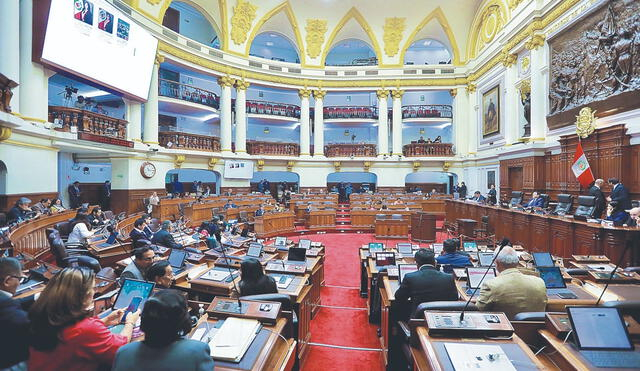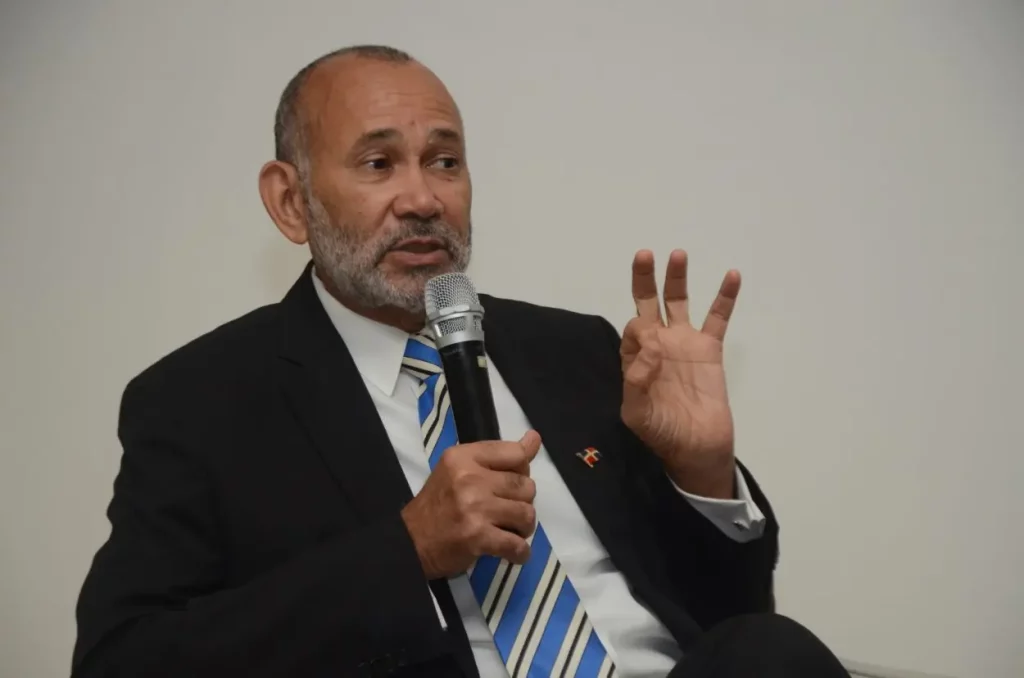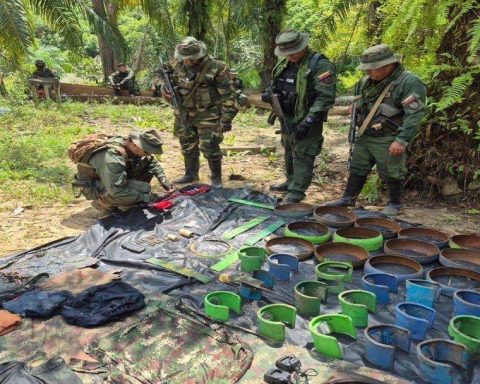In it Congressthere is questionable bills already approved in the first vote by the Plenary and awaiting ratification by a majority of parliamentarians in second consultation to be one step away from becoming law. Today, the Board of Spokespersons The Legislative Branch must agree on the proposals to be discussed at the next plenary session.
Some of these initiatives have already been included in the agenda of the last plenary sessions, but they were not voted on, among many other issues that were defined.
In this waiting situation, the project on the re-election of mayors and regional governors stands out, which generated special alarm because it also proposes the elimination of regional movements, similar to political parties limited to only one region of the country.
According to the Association of Regional Movements of Peru, whose leaders met with the president of Parliament, Eduardo Salhuana, and other legislators, there are not enough votes for it to be ratified. Freddy Vracko, president of this association, even obtained the commitment of the leader of Popular Renewal, Rafael López Aliaga, current mayor of Lima.
This project was on the agenda of the last two ordinary plenary sessions, on August 22 and September 4, without being addressed.
Additionally, according to sources in Congress, “Popular Action does not want to support (this ruling) and without those votes it will not pass.”
Another project pending a second vote proposes that Parliament be able to draw up the regulations for the future Senate and Chamber of Deputies. It was approved in the first vote on May 30.
The original formula was proposed almost two months earlier by Congressman José Elías Ávalos, of the Alianza para el Progreso (APP). A few weeks after it was presented, Parliament had ratified in a second consultation the reform of the bicameral system, questioned for restoring the re-election of legislators.
There is a citizen initiative that aims to repeal the reform of bicameralism, among other measures, with a bill that is achieved as a proposal from the population with 76,000 signatures at the start. It is promoted in a campaign called ‘The ball is in our court’.
The initiative of the Ombudsman’s Office on the National Justice Board (JNJ) is also awaiting a second consultation. This seeks to declare the other candidates approved in the competition to integrate this entity of the justice system as substitutes and disqualifies them if they refuse to assume the position “without cause or impediment indicated by law.”
It was introduced in April and approved on the first vote.
Own benefit
There is another project to benefit outdoor advertising. This proposal has been questioned because it was promoted by Congresswoman Elva Julón, from the APP bench, and would favor Juan Carlos Alfaro Acuña, nephew and close collaborator of César Acuña, president of the APEP party and current regional governor of La Libertad.
This nephew of Acuña owns the companies Alac Outdoor and is the director of Alac Ooh, two of the largest outdoor advertising firms in our country.
Alfaro Acuña was investigated by the Prosecutor’s Office in a case of alleged money laundering in a scheme of payments from the APEP leader to the Brazilian consultant Luis Favre, who advised him as part of the Odebrecht mega-case in our country.
Acuña’s nephew was a contributor to his presidential campaign in 2016, when he was removed from the race by the National Elections Jury (JNE) for giving gifts to voters, an action prohibited and sanctioned by law.
This project would also eliminate the light pollution law, if it becomes law.
The second vote by the Plenary is also pending on a mental health initiative that seeks to include the participation of psychologists in the diagnosis of mental problems, but prohibits them from prescribing medication.
Another project awaiting ratification proposes allowing doctors and health personnel to have other jobs in the State, as is currently the case with university teaching.
The Congress agenda will determine its priorities and response to the public’s views.
Ethics defines the table and Foreign Affairs calls the chancellor
The Congressional Ethics Commission will define today the composition of its Board of Directors: its president, vice president and secretary.
His agenda is to evaluate the qualification reports of cases against Isabel Cortez, Segundo Montalvo, Flor Pablo Medina and Pasión Dávila and to hold a hearing on the case of legislator Darwin Espinoza.
The The Foreign Relations Committee of Congress has summoned the new foreign minister, Elmer Schialer, for todayafter being questioned about his statements regarding the elections in Venezuela.
Reaction
There is still some time to create laws that improve the 2026 elections. It will depend on the will of the congressmen and on listening to specialists with diverse approaches.”
José Naupari, lawyer (electoral law)

















